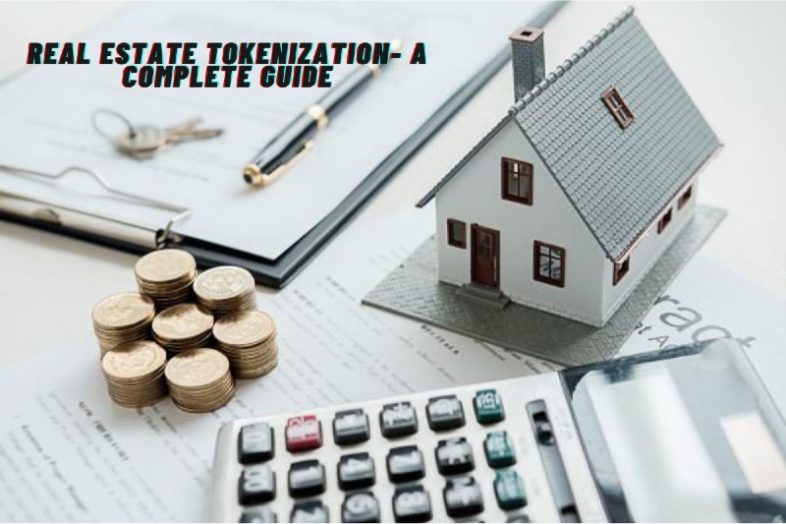Real Estate is considered one of the most important industries of the economy and one of the safest investments. They contribute a major share to a country’s economy as well as boosts the income of individuals. It plays a crucial role in the lives of common people. Even so, real estate transactions are one of the most complex and expensive ones, making real estate illiquid which makes it difficult for investors to cope up with. Also, there are several other factors affecting real estate expansion, such as constantly changing economic conditions, high-interest rates, long and tedious paperwork, too much involvement of third parties, etc.
In recent years, blockchain-based tokenization has succeeded in making real estate much efficient, accessible, and affordable to the investors. And many experts believe that tokenization is the key to transform the industry into the next level. If you’re a property owner, or an investor looking for an opportunity to invest in real estate, this article will jot down the 3 W’s of tokenization of real estate, i.e what is tokenization? Why should you tokenize? and where to tokenize your real estate? So let’s go ahead and find out.
What is Real Estate Tokenization?
Real Estate Tokenization is the process of converting a property value into digital tokens that represents a single property or a share of different properties. In simple terms, Tokenization is the process of digitization of assets on a blockchain platform. Each token represents a share of an asset. When investors buy these shares, they become partial owners of the asset. Any type of real estate property can be tokenized such as:
- Tokenization of Residential Real Estate
- Tokenization of Commercial Real Estate
- Tokenization of Single Real Estate
- Tokenization of Trophy Real Estate
Tokenization alongside blockchain technology offers a multitude of benefits to the investors over the traditional real estate method. Let’s take a look at the significant ones.
Why Tokenize Your Real Estate?
Fractional Ownership and Improved Accessibility
Tokenization allows the property owners to divide their asset value into smaller shares on a blockchain-based system. This enables the property owners to expand their distribution to a broader investor group and provides the opportunity for small-time investors to own a share of a valuable property.
Enhanced Liquidity
Illiquidity is the most common issue that majorly affects the investors involved with real estate. Blockchain-based tokenization platforms bring in enhanced liquidity, which allows investors to exchange their digital asset tokens quickly and efficiently when there is a favorable market condition, and for the conversion of the asset value into cash.
Automated Process
Tokenization eliminates the long and tedious paperwork process involved with real estate. Real Estate tokenization platforms function on a smart contract-based system which automatically executes transactions once the involved parties agree to the necessary terms and conditions. Smart contract-based transactions enable more speed, accuracy, and seamlessness. Also, it eliminates the need for third-party involvement, which enables more secure, and cost-effective transactions.
Global Access
Blockchain-based tokenization removes the barriers to entry. Any investor from any part of the world can gain access to a real estate property through tokenization. This benefits both the property owners and the investors to diversify their portfolios.
Transparency
Tokenization platforms function based on blockchain which is a distributed public ledger. Every transaction that takes place and every past record is visible to the involved parties. Also, the immutable characteristic of blockchain helps every stakeholder and investor prove and safeguard their ownership rights. Every ownership and transaction information is recorded on the blockchain which cannot be altered or erased by a third party, avoiding the chances of fraudulent.
These are the key benefits of tokenization of real estate on a blockchain network and there are many more to it. Now if you are confused about how to go about tokenizing your real estate property, you will figure out the solution below.
Where and How to Tokenize your Real Estate?
The best option to tokenize your real estate is to carry out in-depth research and choose a well experienced real estate tokenization company. By doing so, you will acquire trusted, all-inclusive solutions at cost-effective prices. For your understanding, here are the steps followed by a real estate tokenization company to digitize your real estate property.
Structuring
The first and foremost structuring process involves various elements, such as determining the asset type, shareholder types, jurisdiction-based regulatory frameworks, etc. The company will determine the asset type, and compute the current value of the asset to digitize it and divide the shares accordingly. They will analyze the legal requirements based on the jurisdiction of the asset, and make sure your platform complies with it.
Rights of shareholders
Once the legal structure of your asset is figured out, they will determine the rights of shareholders accordingly, such as the right to dividends, or governance of the property, etc.
Types of Investors
The legal structure may dictate which types of investors will be enabled to deal with the asset. The target investor group will mainly reside in the respective jurisdiction.
Technology Integration
The next step is to determine the right blockchain platform for the tokenization of your asset. The platform should enable asset owners to transform the ownership to anyone they prefer abiding by the legal terms. The platform should be enabled with automated KYC/AML verification systems for accredited investors, and also it should provide high volume liquidity.
Token Distribution
The final step is the launch and distribution of tokens to the investors. After investors’ registration, the tokens can either be sent directly to the investors’ accounts or it can be listed in the primary issuance platform. After investors make the purchase, they will receive the digitized securities.
These are the basic steps involved with the tokenization of real estate. As mentioned earlier, blockchain-based tokenization has all the potential to disrupt the whole industry by providing better infrastructure solutions, improve the speed and efficiency of payments, improve accessibility, induce instant settlements, reduce risks, etc. Tokenization is undoubtedly the future of real estate.
Even though a real estate tokenization platform possesses immense potential, it might also come with a complex structure, practical and legal issues. To avoid such hassles, conduct extensive research and choose the right company to become a powerful market player.




